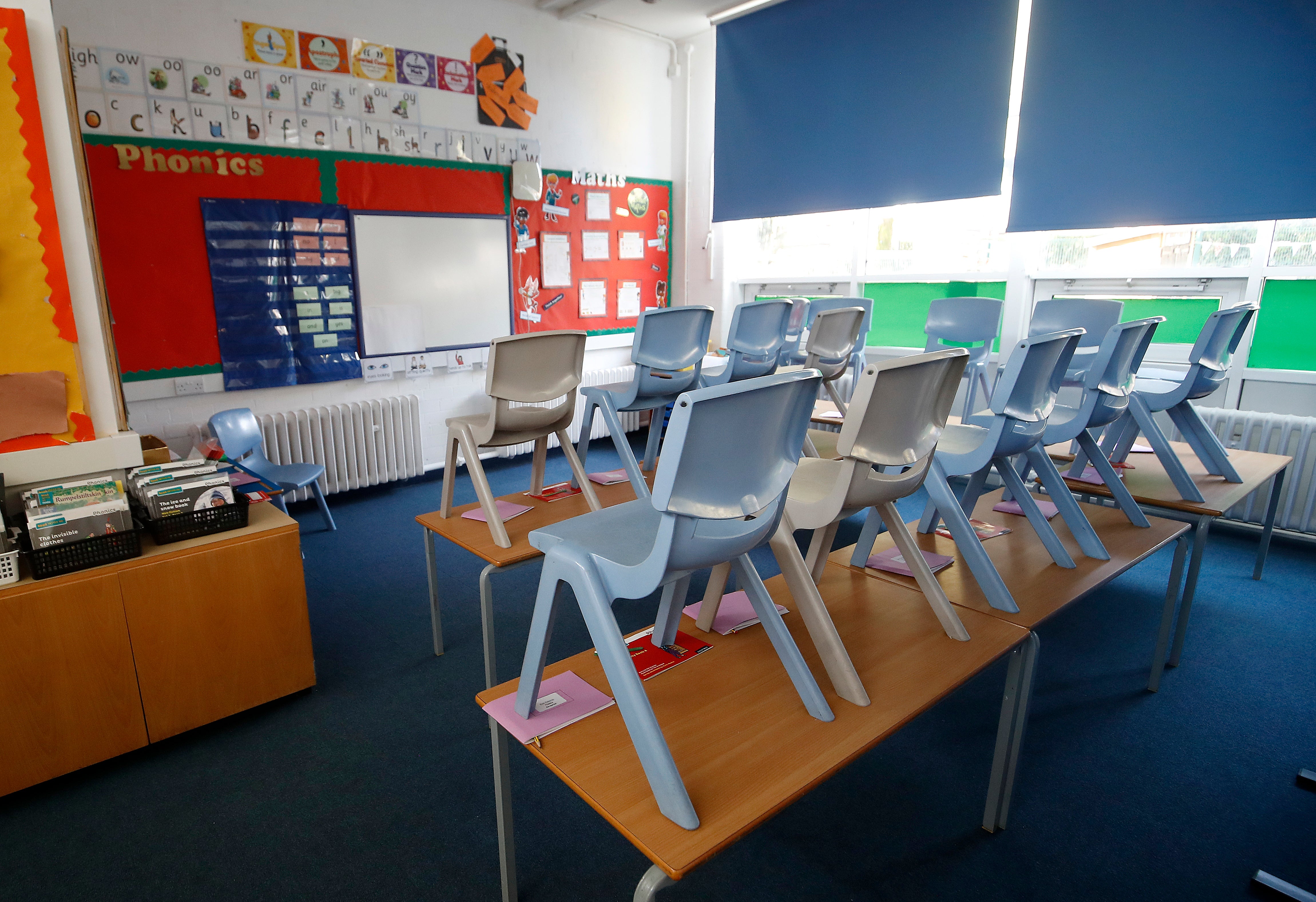Return of children to school will lead to more Omicron cases, union warns
The Education Minister said her priority is to keep schools open safely.

Your support helps us to tell the story
From reproductive rights to climate change to Big Tech, The Independent is on the ground when the story is developing. Whether it's investigating the financials of Elon Musk's pro-Trump PAC or producing our latest documentary, 'The A Word', which shines a light on the American women fighting for reproductive rights, we know how important it is to parse out the facts from the messaging.
At such a critical moment in US history, we need reporters on the ground. Your donation allows us to keep sending journalists to speak to both sides of the story.
The Independent is trusted by Americans across the entire political spectrum. And unlike many other quality news outlets, we choose not to lock Americans out of our reporting and analysis with paywalls. We believe quality journalism should be available to everyone, paid for by those who can afford it.
Your support makes all the difference.The return of children to school will lead to a further increase in Omicron transmission in Northern Ireland a teaching union has warned.
Graham Gault from the National Association of Head Teachers (NAHT), said that while teachers wanted schools to remain open, they had concerns over contact tracing as well as a staffing crisis.
Education minister Michelle McIlveen has said that her priority is to keep children in school and added that her department continues to liaise with the Department of Health as well as schools over Covid concerns.
The most recent Covid figures published by the Department of Health on New Year’s Eve showed that there were a further 7,215 cases notified, a record daily total since the beginning of the pandemic.
Our experience is clearly that children and spread this virus from child and to child and we would expect that to be even more noticeable
Children in Northern Ireland are returning to school this week following the Christmas break.
Mr Gault said: “Our experience is clearly that children spread this virus from child to child and we would expect that to be even more noticeable with the arrival of the Omicron variant.
“School leaders are deeply frustrated that we are going into another term with the absence of any meaningful contact tracing amongst the school population as well as the continuing strange isolation guidance for children, particularly when they have contacts at home.
“School leaders feel that these things continue to be conducive to the risk of transmission.”
Mr Gault also raised concerns about the number of teachers absent due to Covid, and the difficulty schools have had in securing the services of substitute teachers.
He said: “That is particularly frustrating because it was predictable and avoidable.
“We asked the Department of Education to put contingency plans in place for this eventuality many months ago.
“We are asking the minister to make it very clear to our parents that school leaders want our children to be in school but they can’t perform miracles, and if staffing levels necessitate a temporary closure or a move to remote learning for some children, for a class or a year group or a whole school, then the communities should be understanding of that.
“We want the minister to communicate that clearly.”
Ms McIlveen said she wanted to support teachers in keeping schools open safely.
She told told the BBC Good Morning Ulster programme: “Our priority remains keeping our children and young people in school.
“We have worked very closely with the Department of Health and with the PHA (Public Health Agency) throughout the Covid pandemic, along with school practitioners and trade unions.
“There has not been any change to the guidance as regards to Covid, because this very much comes as a recommendation from the Department of Health; at present we haven’t received anything different.
“In terms of contingency planning, my department has been preparing for various scenarios throughout all of the work areas.
“On December 6 we wrote a detailed note to schools with regards to remote learning. There are a number of scenarios where schools can use remote learning, particularly where they are experiencing staff shortages.
“We have been keeping in contact with schools directly.”